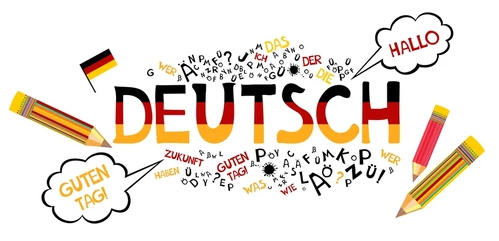Let’s talk about Argentina National Language. Argentina, known for its vibrant culture, rich history, and passionate people, is a country where language plays a significant role in shaping its identity. As a country expert, I will take you on a journey to explore the intricacies of the national language of Argentina, Spanish, and its importance in the fabric of this South American nation.
Argentina, located in the southern part of South America, is a diverse country that attracts visitors from all around the world. From the bustling streets of Buenos Aires to the breathtaking landscapes of Patagonia, Argentina offers a unique blend of natural wonders and urban sophistication. At the heart of this cultural tapestry lies the national language, Spanish, which has shaped the country’s history, literature, and societal norms.
History of Argentina National Language
The roots of the Spanish language in Argentina can be traced back to the arrival of Spanish colonizers in the 16th century. These explorers brought their language, culture, and traditions, which gradually took hold and became the dominant linguistic influence in the region. However, it is essential to acknowledge that the Spanish spoken in Argentina today has evolved over time, influenced by various factors, including indigenous languages.
Characteristics of Argentina National Language
The Spanish spoken in Argentina, known as Rioplatense Spanish, has its distinct characteristics that set it apart from other variants of the language. This regional dialect is primarily spoken in the Río de la Plata basin, encompassing Buenos Aires and its surrounding areas. Rioplatense Spanish is known for its melodic intonation, elongated vowels, and unique pronunciation patterns.
Additionally, an intriguing aspect of Argentinian Spanish is the presence of Lunfardo slang. Originating in the late 19th century among the lower classes, Lunfardo is a colorful and playful slang that has seeped into everyday conversations, popular songs, and even literature. Its inclusion in the Spanish language adds a touch of local flavor and a sense of identity to the way Argentinians communicate.
Status of Spanish in Argentina
Spanish is the official language of Argentina and serves as the primary mode of communication in various domains, including government, education, and media. The country’s constitution recognizes Spanish as the national language, solidifying its importance in the legal framework of the nation. Moreover, Argentina has enacted language policies and legislation to ensure the preservation and promotion of the Spanish language.
Language Variation in Argentina
As a vast and diverse country, Argentina is home to several regional dialects, each with its unique linguistic features. From the rural areas of the Andean Northwest to the coastal regions of Patagonia, the Spanish language undergoes subtle variations in pronunciation, vocabulary, and grammar. Furthermore, social and generational factors also contribute to language variation within Argentina. Different social groups and generations may exhibit distinct linguistic patterns, influenced by factors such as education, socio-economic background, and exposure to media.
Spanish Education in Argentina
Education plays a crucial role in language preservation and development. In Argentina, Spanish is taught in schools as the primary language of instruction. From an early age, students learn to read, write, and communicate effectively in Spanish. The educational system also recognizes the importance of bilingualism and offers programs that promote the learning of indigenous languages alongside Spanish.
Bilingual education programs are particularly significant in regions with a significant indigenous population. These programs aim to preserve indigenous languages and cultural heritage while ensuring proficiency in Spanish. By embracing bilingualism, Argentina strives to maintain linguistic diversity and foster inclusivity within its education system.
Impact of Spanish on Argentinian Society
The Spanish language has had a profound impact on various aspects of Argentinian society, from cultural expression to literature and entertainment. Argentina boasts a rich literary tradition, with renowned authors such as Jorge Luis Borges and Julio Cortázar, who have contributed significantly to Spanish literature. The language serves as a vehicle for artistic expression, allowing writers to capture the essence of the Argentine experience and share it with the world.
Spanish also dominates the media landscape in Argentina. Television, radio, and print media predominantly use Spanish as the medium of communication. From telenovelas to news programs, the language plays a vital role in shaping public discourse and disseminating information to the masses. The influence of Spanish in the media contributes to the cohesion of the country and strengthens its cultural identity.
Challenges and Controversies Surrounding Argentina National Language
Despite its widespread usage and cultural significance, the Spanish language in Argentina is not without its challenges and controversies. One ongoing debate revolves around language standardization. Some argue for the establishment of a standardized version of Argentinian Spanish, similar to the standard Spanish used in Spain. Proponents believe that a standardized language would facilitate communication and improve linguistic unity. However, opponents argue that such standardization would diminish the uniqueness and local flavor of Argentinian Spanish.
Another issue relates to language rights and inclusivity. Argentina is a diverse country with various ethnic groups and immigrant communities. Some argue that the dominance of Spanish may marginalize other languages and hinder the linguistic rights of minority groups. Efforts are being made to address these concerns by promoting multilingualism, providing language support for minority languages, and encouraging cultural diversity.
Conclusion
The national language of Argentina, Spanish, holds a significant position in the country’s cultural identity. It has evolved over centuries, incorporating influences from indigenous languages and developing distinct regional variations. Spanish education, literature, and media play a crucial role in preserving and promoting the language. However, challenges and debates surrounding language standardization and inclusivity remind us of the ongoing complexities of language dynamics in Argentina.
FAQs
1. Is Spanish the only language spoken in Argentina?
Spanish is the predominant language in Argentina, spoken by the majority of the population. However, Argentina is a multicultural country, and other languages, such as indigenous languages and immigrant languages, are also present.
2. What is Lunfardo slang?
Lunfardo is a slang language that originated in Argentina during the late 19th century. It is characterized by its unique vocabulary and is often used in informal conversations, popular songs, and literature.
3. Are there different dialects of Spanish in Argentina?
Yes, Argentina has several regional dialects of Spanish. The most prominent one is Rioplatense Spanish, spoken in the Río de la Plata basin, including Buenos Aires. Other regions may have their own distinct dialects with variations in pronunciation and vocabulary.
4. Does Argentina promote bilingual education?
Yes, Argentina recognizes the importance of bilingual education, particularly in regions with a significant indigenous population. Bilingual education programs are implemented to preserve indigenous languages alongside Spanish and promote cultural diversity within the education system.
5. Is there a standardized version of Argentinian Spanish?
There is ongoing debate regarding the establishment of a standardized version of Argentinian Spanish. Some advocate for standardization to improve communication and linguistic unity, while others believe it would diminish the uniqueness and local flavor of the language.
References
- Acuña, F. (2006). The Spanish Language in Argentina. In Spanish in Four Continents: Studies in Language Contact and Bilingualism (pp. 329-342). Georgetown University Press.
- Fernández, D., & López, M. (2018). Language Policies and Bilingual Education in Argentina. In Language Policy and Linguistic Justice: Economic, Philosophical and Sociolinguistic Approaches (pp. 163-184). Springer.
- Grondona, V. (2017). Language Diversity, Education and Social Participation in Argentina. In Education and Society in Latin America (pp. 163-187). Springer.

